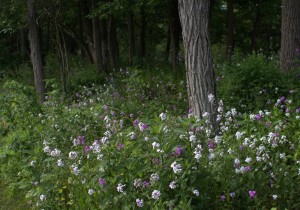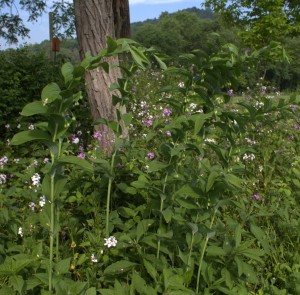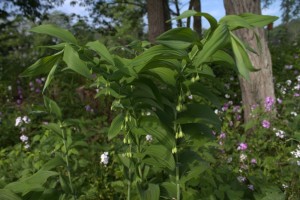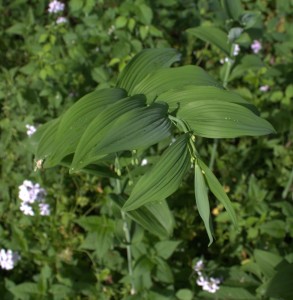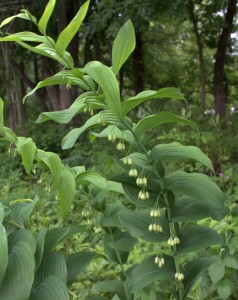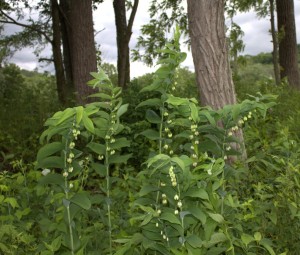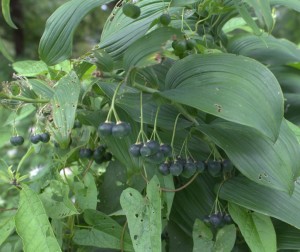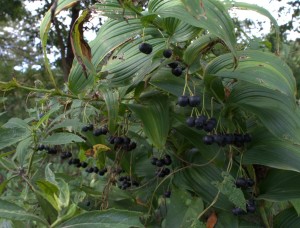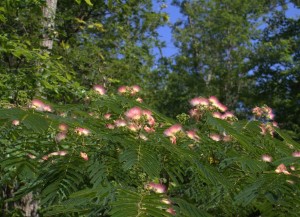Welcome back to Flower Poetry Fridays with Mrs. Sigourney. Each Friday a new poem will be posted from her The Voice Of Flowers.
THE MINISTRY OF FLOWERS.
FLOWERS ! Flowers ! the poetry of earth,
Impulsive, pure, and wild ;
With what a strange delight they fill
The wandering, mirthful child ;
It clasps their leaflets close a while,
Then strews them wide around ;
For life hath many a joy to spare
Along its opening bound.
The maiden twines them in her hair,
And, ‘mid that shining braid,
How fair the violet’s eye of blue,
And the faint rose-bud’s shade,
Upon her polish’d neck they blush,
In her soft hand they shine,
And better crown those peerless charms
Than all Golconda’s mine.
Above the floating bridal veil
The white Camella rears
Its innocent and tranquil eye,
To calm young beauty’s fears,
And when her hoary age recalls
The memories of that hour,
Blent with the heaven-recorded vow
Will gleam that stainless flower.
The matron fills her chrystal vase
With gems that Summer lends,
Or groups them round the festal board
To greet her welcome friends,
Her husband’s eye is on the skill
With which she decks his bower,
And dearer is his praise to her
Than earth’s most precious flower.
Frail gifts we call them, prone to fade
Ere the brief spring is o’er,
Though down the smitten strong man falls,
Returning never more.
Time wears away the arch of rock,
And rends the ancient throne,
Yet back they come, unchang’d, as when
On Eden’s breast they shone.
How passing beautiful they are,
On youth’s unclouded plain,
And yet we scarcely know their worth
Till life is on its wane,
Then grows their love a deeper thing,
As our lone path-way tends
Down ‘mid the withering plants of hope,
And graves of buried friends.
Like ready comforters, they bend,
If sorrow pales the cheek,
And to the sad, desponding heart
An angel’s message speak,
While, to the listening mourner’s ear,
They fondly seem to say
The words of those departed ones,
Who sleep in mouldering clay.
We nurse them in our casement warm,
When Winter rules the year,
And see them raise their graceful form,
The darkest day to cheer ;
Within our coffin-lid they glow,
When death hath had his will,
And o’er our pillow in the dust
They bend and blossom still.
Yes, o’er our cradle-bed they creep,
With rich and sweet perfume,
Around the marriage altar twine,
And cheer the darksome tomb ;
They whisper to the faithful dead
With their fresh, vernal breath,
That such his rising hour shall be,
Through Him, who conquer’d death.
Flowers minister to us all the time.
In times of sickness we receive flowers that make us smile and feel better. In health we share good feelings with others by giving flowers.
Mrs. Sigourney observes that no matter the season of life we’re in, flowers often play a role.
Children play with them and strew their petals about — taking time to stop and smell the roses.
Life events like weddings, special anniversaries, receiving a newborn child, and happy graduations are celebrated with flowers.
Funerals and gravesides are marked with flowers to remind us of the Good News and to help take away frightening thoughts.
Come back next Friday for the next installment in our series of flower poems from Mrs. Sigourney’s The Voice of Flowers, “The Winter Bouquet”.

